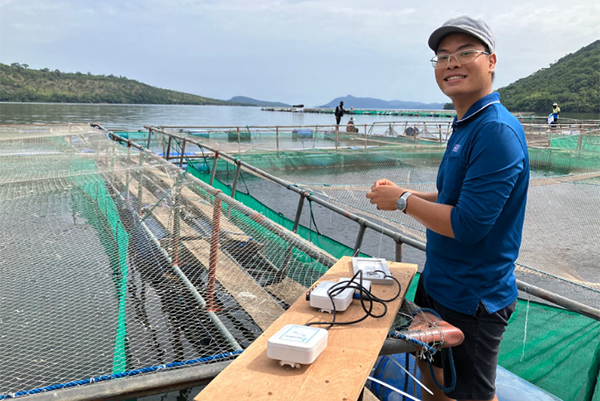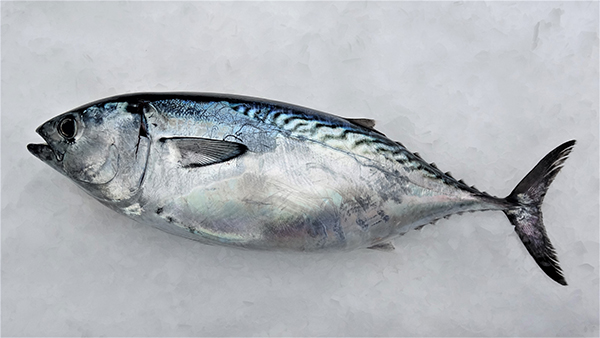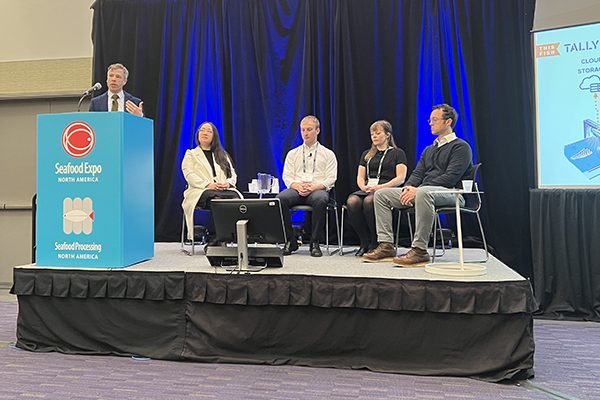Artificial intelligence-based computer vision system can count and measure shrimp with up to 95% accuracy

After two years, a team of researchers has developed artificial intelligence (AI) technology that can successfully detect and monitor shrimp growth, population size, mortality and stress.
The AI-based computer vision system can count the number of shrimp and measure their length at up to 95 percent accuracy, which was achieved in real-time and under actual farming conditions (i.e., under high stock densities and in cloudy water). The system, which was developed by scientists and engineers at the Alfred Wegener Institute, Helmholtz Centre for Polar and Marine Research (AWI) in collaboration with shrimp farming leader Oceanloop, offers aquaculture companies a better understanding of how their livestock are performing as well as how to farm ethically.
“The mortality rates, which can range from 13 to 26 percent in salmon and can be up to 50 percent in shrimp, are substantially higher than with any other type of livestock,” said Stephan Ende, the project’s coordinator at the AWI. “Online monitoring allows aquaculture companies to more quickly respond to signs of stress among their stock.”
The first prototype was tested in 2022 at Oceanloop’s R&D farm in Kiel, Germany. A modern smartphone, installed above the water’s surface, automatically photographed the shrimp once a minute and transferred the live data to a local server. Then, computer-vision-based algorithms were used to count the number of shrimp in each image and measure the lengths of individual shrimp.
The resulting information was to be provided to the fish farming software package AquaManager®, making it possible to optimize growth and feeding models based on live data. In addition, the group was able to visually detect stress symptoms in the shrimp.
“This function is used as an early warning system, but also to validate our stock density model,” said Bert Wecker, Co-CEO of Oceanloop. “This bleeding-edge technology allows us to more precisely determine the density for each size group, which improves survival rates, growth and feed efficiency.”
For shrimp farming, artificial intelligence offers long-term value
The new technology was developed to meet the needs of Europe’s land-based shrimp farms, which are increasingly focused on improving sustainability and animal welfare.
The development of this AI technology represents an important milestone on the road to industrial-scale shrimp farming. Oceanloop plans to significantly expand its capacities in Europe by 2027 by building the largest and most sustainable land-based shrimp farm in the world, with an annual production volume of more than 2,000 metric tons.
“The ability to monitor the shrimp’s growth and health with live data in real-time will on the one hand help to reduce risk in aquaculture,” said Fabian Riedel, co-founder and Co-CEO of Oceanloop. “At the same time, it will offer complete transparency regarding the biomass, making it possible to optimize the value chain from farming to processing to sale.”
Follow the Advocate on Twitter @GSA_Advocate
Now that you've reached the end of the article ...
… please consider supporting GSA’s mission to advance responsible seafood practices through education, advocacy and third-party assurances. The Advocate aims to document the evolution of responsible seafood practices and share the expansive knowledge of our vast network of contributors.
By becoming a Global Seafood Alliance member, you’re ensuring that all of the pre-competitive work we do through member benefits, resources and events can continue. Individual membership costs just $50 a year.
Not a GSA member? Join us.
Author
Related Posts

Intelligence
Startup uses data analytics and machine learning technology to boost tilapia health in Ghana
The initiative leverages data analytics and machine learning to correlate and anticipate tilapia health and growth with environmental data.

Fisheries
Artificial intelligence algorithm from WCS is the first to correctly estimate fish stocks
Researchers created an artificial intelligence model that has successfully estimated fish stocks with 85 percent accuracy in trials.

Intelligence
Artificial intelligence is taking fish farming (and sushi) in Japan to greater heights
From artificial intelligence to remotely operated vehicles, new technologies offer Japanese aquaculture improved efficiency and insights into fish farming.

Intelligence
AI is becoming an ‘integral part’ of fisheries management and seafood processing
Artificial intelligence (AI) is playing a larger role in seafood, as data is at the heart of the so-called fourth industrial revolution.



